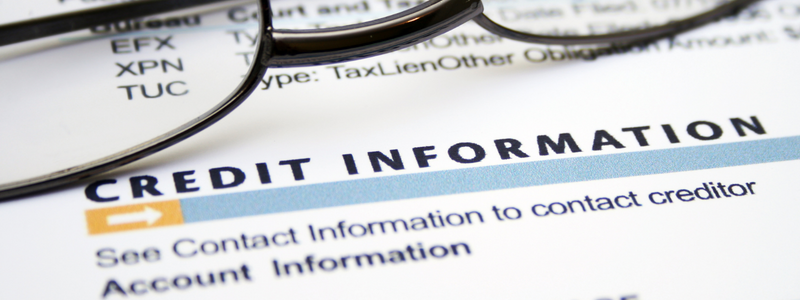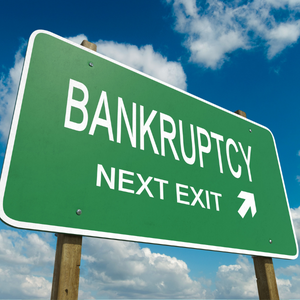
To attain and maintain a healthy credit score, you first need to understand credit. Unfortunately, there are so many myths regarding debt, credit scores and credit reports, many of which hold consumers back from reaching their true credit potential (unbeknownst to them, of course). If you hope to achieve an above-average or even stellar score, you first need to learn to discern credit fact from credit fiction.
Myth #1: Checking Your Credit Report Will Hurt Your Score
One of the oldest and most believed myths regarding credit is that checking your credit report will hurt your score. This is not true. You need to regularly access your report to know what you are and are not doing right and to make the necessary fixes. Though an inquiry does go onto your report every time someone (including you) views your credit profile, the inquiry only results in a ding to your score if it’s related to a credit application. If you apply for a loan or credit card, your score may fall a bit when the lender looks at your profile, if only because it suggests to the bureaus that you intend to add to your debt. However, when you check your score, the bureaus consider it a “soft inquiry,” which does not do any damage.
Myth #2: You Have To Be Really Irresponsible To Damage Your Score
It can take a long time — from several months to several years — to move your credit score from “Fair” to “Good” to “Excellent,” but you can ruin your credit in just a matter of months. According to the FICO data, a 30-day delinquency can result in a 90- to 100-point drop to a score of 780 of a consumer who has never missed a payment. For someone with a credit score of about 680, a 30-day delinquency can result in a 60- to 80-point drop. The credit bureaus are unforgiving, and while they’re slow to reward good behavior, they’re quick to penalize less-than-stellar performance.
Myth #3: Carrying a Small Balance Is Good for Your Credit
It’s unclear where or how this rumor started, but it’s one that many an unassuming victim falls for. The theory behind this myth is that by carrying a small balance each month and paying a small amount of interest will make the banks to love you and inspire them to give you a better credit score. Credit does not work this way.
For one, lenders do not score you; the credit bureaus do. Two, while credit bureaus do take into consideration your monthly balance, they ding you if your credit utilization rate is too high. Using less of your balance generally results in a score increase. Finally, by carrying a balance you’re just asking to pay an unnecessary amount in interest.
If possible, always pay off your balances in full if you can. Not only will doing so help you to keep your credit utilization rate down but it will also help you avoid costly interest charges.
Myth #4: You Need To Be Wealthy To Have an Excellent Credit Score
Though your income indirectly affects your score, the credit bureaus do not consider it a relevant scoring factor. However, your income may affect your bill-paying habits or force you to use credit in emergencies, two factors that do impact your credit score. Regardless of how much money you make, you should never put anything on credit if you don’t have the money in your bank account to pay it off. Exercising this kind of restraint is key to achieving and maintaining optimal credit.
Myth #5: It Will Take You Seven Years To Improve a Bad Credit Score
It’s true that negative information stays on your credit report for seven years, but if you take measures to counteract it and improve your creditworthiness, that negative information becomes less and less relevant. With discipline and motivation, you can turn a bad score around in as little as one year, even if your score is down in the 300s to 400s.
Myth #6: Paying Off Your Debt in Full Will Boost Your Credit Score
Credit utilization is a major score-determining factor, but it comes second to payment history. If you have a long history of missed payments and lengthy delinquencies, it may take you months or even years to see a boost in your score. Additionally, if you’re debt-free because of bankruptcy, you have your work cut out for you if you hope to see an improvement on your report.
Myth #7: Debt Is Debt
Despite popular belief, not all debts are created equal. If you have $150,000 worth of credit card debt, the credit bureaus are sure to assume you are not a responsible spender (which is probably true). However, if you have $150,000 in mortgage loans, then the bureaus are unlikely to ding you, as chances are you’re like millions of other responsible homeowners.
Myth #8: Closing an Account Is Good for Your Score
If you have credit you don’t use, you may think it a good idea to close the account. After all, what good is it doing you? A lot, actually. Your unused credit boosts your utilization rate, which is the second biggest factor credit bureaus use to score consumers. By closing your account, you reduce your amount of available credit and increase your utilization rate, which ultimately results in a score decrease. If you’re not tempted to use the available credit, just leave the account open.
Myth #9: Bad Credit Means You Can’t Get Approved for Anything
Your credit score carries a lot of weight, but it’s not the only factor lenders consider before granting loans. A lender may consider your income and current level of debt. If you can prove you have the means to pay off a small balance each month and that you don’t have significant other debt to worry about, a lender may approve you. However, you may have to pay a security deposit and/or a higher interest rate.
Myth #10: You Should Never Create More Debt To Pay Off Debt
If you have multiple sources of debt and struggle to make timely payments that extend beyond the monthly minimum, consolidating your debt may be the smartest thing you do. By consolidating your debt, you can eliminate multiple interest rates, reduce your monthly payment amounts and even reduce your utilization rate. Learn more about debt consolidation loans and see if you qualify.



